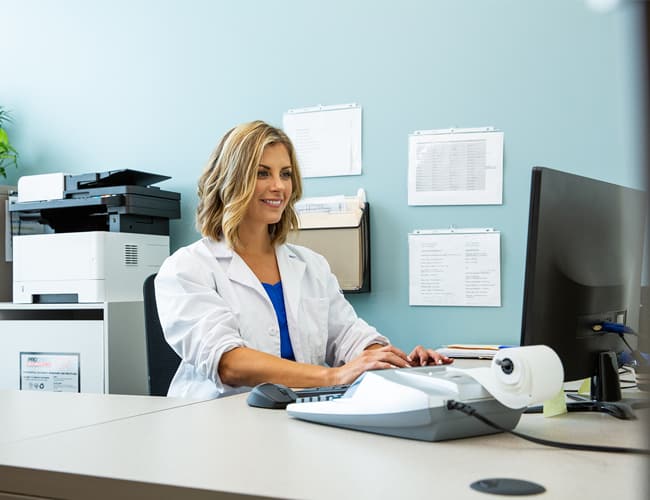August 19, 2022
Protecting the Private Information in Your Medical Documents
When you entrust your medical provider with your private health information, it’s natural to expect that this information will be kept confidential. Unfortunately, there have been several recent cases in which patient privacy has been violated. In some cases, patients’ medical records have been accessed without their permission. In other cases, sensitive information has been leaked to the press or sold to third parties. While these incidents are rare, they emphasize the need for patients to be proactive in protecting their private information. Luckily, Proshred® is here to provide a few tips on the ways you can protect your medical documents.
Legal Requirements of HIPAA
The Health Insurance Portability and Accountability Act (HIPAA) was enacted in 1996 to protect the confidentiality of patients’ medical information. HIPAA requires that covered entities, such as healthcare providers and insurance companies, maintain the privacy of protected health information (PHI). PHI includes any information that can be used to identify an individual, including names, addresses, birthdates, and Social Security numbers. Under HIPAA, covered entities must take reasonable steps to safeguard PHI from unauthorized disclosure. They must also provide patients with access to their own medical records and allow them to request amendments to correct errors in the information. Patients have a right to know how their PHI will be used and disclosed, and they must give their permission before their PHI can be released to anyone outside of the healthcare organization. By understanding their rights under HIPAA, patients can help to ensure that their private medical information is kept confidential.


Types of Medical Documents
There are several different types of medical documents, all of which contain sensitive information. Here are some common examples:
- Patient Charts: Along with basic identifying information, such as your name, address, and date of birth, patient charts often contain detailed information about your medical history, treatment plans, and medication.
- Medical Bills & Insurance Claims: These documents may contain detailed information about your payment methods and banking information that could cause financial harm if they end up in the wrong hands.
- Prescriptions: Lost or stolen prescriptions often contain identifying information, and a thief could attempt to illegally purchase controlled substances using your personal information.
- Medical Test Results: These documents may contain private information about your health that you don’t want to share with anyone outside of your healthcare team. If your test results are misplaced, then your private information could be made public.
Privacy Risks of Mishandling Medical Documents
When medical records are mishandled, it can lead to a breach of privacy that can have a number of consequences. First and foremost, it can jeopardize the relationship between a patient and doctor if the patient feels that their information is not being properly protected. Additionally, it could lead to identity theft or fraud if sensitive information like social security numbers or credit card information is included in the mishandled records. In some cases, it may even be possible for insurance companies to deny coverage or raise rates if they believe that the patient’s information has been compromised. As you can see, there are a number of serious risks associated with the mishandling of medical records.


How To Keep Your Medical Documents Secure
Keeping your medical documents secure is important for protecting your privacy and ensuring that your information is only accessed by authorized personnel. There are a few simple steps you can take to ensure that your medical records are kept safe. First, choose a secure location for storing your records. A lockable file cabinet or safe is ideal. You should also consider encrypting any electronic files containing sensitive medical information. Second, limit access to your records to only those individuals who absolutely need to see them. Finally, be sure to shred or destroy any documents that you no longer need in order to prevent unauthorized access. By taking these precautions, you can help keep your medical records safe and secure.
Proshred® Dallas Will Help Protect Your Information
When it comes to safeguarding your patients’ privacy, you can never be too careful. Proshred® Dallas specializes in secure information destruction, and we can help you protect your patients’ confidential medical records. Our mobile shredding trucks can come to your office or facility and shred old medical records directly on-site. We also offer hard drive destruction services to ensure that all of your sensitive electronic data is completely erased. With our help, you can rest assured that your patient’s information is always safe and secure. Contact us today to learn more about our services.
